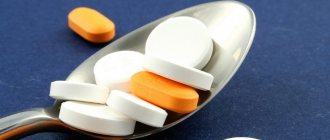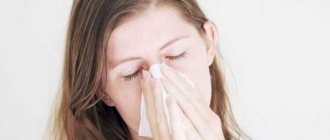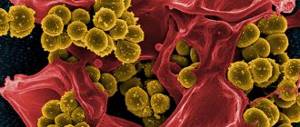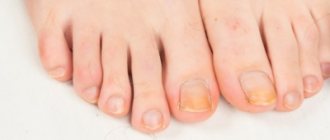How to treat internal hemorrhoids is the main task that the proctologist must solve after establishing the appropriate diagnosis for the patient.
The method of eliminating the disease depends on the stage of its course. For example, it is advisable to prescribe conservative therapy in the initial stages of the disease, while in complicated cases, the only effective method is surgical intervention. Thus, treatment may include the following methods:
- oral tablets
- use of ointments and rectal suppositories;
- use of alternative medicine methods;
- surgical intervention.
In most cases, therapy involves an integrated approach even with the mildest course of such a disease. Only the importance of a particular technique can change. For example, with a mild course, conservative measures will form the basis, and operations are carried out according to individual indications. However, with a complicated form, the treatment picture looks the other way around - the main role is played by surgical excision of hemorrhoids, and the use of drugs and traditional recipes will be of an auxiliary nature.
Treatment with medications
Medicines for internal hemorrhoids may differ in their composition, release form and main effect. Tablets and drops are indicated for oral use. They should be selected only by the attending physician, taking into account all the features of the course of the disease. In addition, this or that medication must be taken strictly at the specified time and in compliance with the daily dosage.
Main groups of drugs:
- anesthetics and painkillers;
- laxatives;
- venotonic;
- hemostatic.
The main purpose of the tablets is to eliminate the internal etiological factor, for example, constipation, infectious or inflammatory process. In addition, they should help strengthen blood vessels and increase the tone of the veins. Often medications have a complex effect, i.e.:
- reduce swelling;
- help improve blood flow;
- reduce signs of the inflammatory process;
- eliminate signs of the disease, in particular, intense pain.
The list of vein-strengthening tablets includes:
- “Troxevasin” is a medicinal substance aimed at strengthening the walls of blood vessels, eliminating swelling in the anal area, pain and anal bleeding. They must be taken with every meal. The therapeutic course varies from two weeks to a month;
- "Glivenol" - in addition to the above properties, helps improve blood circulation;
- “Detralex” - such tablets are prescribed for almost every venous pathology, in particular, for internal hemorrhoids of any severity. The beginning of treatment involves taking six capsules, and after a few days their number is reduced to three per day. The course of therapy often does not exceed seven days;
- "Venarus" is an oral medication that is prescribed for both acute and chronic cases of such a disorder. The principle of administration corresponds to the rules of the previous medicine.
Elimination of the internal hemorrhoidal node with painkillers lasts about three days, after which they switch to anesthetic ointments or suppositories. This is due to the fact that long-term use of such tablets can lead to bleeding or disruption of the blood clotting process. Often, for such an illness, the following pain medications are indicated:
It is worth noting that patients are prohibited from independently exceeding the course of use and changing the dosage. Such tablets are used with caution for women during pregnancy. Such drugs help prevent:
- anal bleeding;
- occurrence of cracks;
- injury to nodes;
- chronic constipation.
The following are used as laxatives:
- "Fitolax" - has a laxative effect after about seven hours. The course of treatment should not exceed two weeks;
- "Senade" - begins to act after eight hours;
- "Regulax".
Despite the fact that such tablets contain herbal ingredients, they are prohibited for pregnant women.
In addition to conservative treatment, the following may be prescribed:
Drugs used in the late stage of hemorrhoids
Use medications, hemorrhoids can be avoided. Medicines that are used at a late stage of the disease are time-tested, have a potent effect and have a quick effect. Such drugs include:
- Posterized.
- Detralex.
- Litovit-B.
- Ginkor fort.
Posterisan is the most effective remedy for the treatment of hemorrhoids. It helps to quickly eliminate the inflammatory process, relieves pain and swelling. The drug contains substances that help strengthen the immune system and speed up the healing of tissue cells. These elements prevent the formation of blood clots and stagnation of feces.
Detralex are tablets that have a very strong effect. They have a number of side effects and are not recommended for pregnant or breastfeeding women. This medication helps strengthen blood vessels, neutralize constipation and increase tissue elasticity. This medication for the treatment of hemorrhoids is taken for 7 days. It is not recommended to take Detralex for young children or elderly patients. The dosage of the drug is calculated by the attending physician depending on the complexity of the disease and its form. When taking the drug, you must strictly follow the instructions. Exceeding the norm can negatively affect the functioning of organs.
Of the tablets taken orally, Litovit-B is in great demand. This medication is prescribed to almost all patients, it does not cause an allergic reaction, and is suitable even for pregnant and lactating women. This medicine contains exclusively plant elements that do not have a negative effect on the human body. The composition of the medicine includes:
- zeolite;
- burnet.
These components contribute to the soft release of feces and the restoration of the body's protective functions.
Ginkor Fort is a medicine that helps fight both external and internal manifestations of hemorrhoids. This drug can help both at the initial stage of development of the disease and at the last. Ginkor Fort tablets help restore the body's immune defense and improve blood circulation. The use of this medicine helps prevent the formation of hemorrhoids.
Ointments and suppositories
Complex therapy for such a disease involves the use of ointment for internal hemorrhoids. However, they are more common for the treatment of external hemorrhoids. However, in order for the medicinal substance to have a local effect, it is necessary to use a special device with a tip, which is included with each package.
The most effective for internal hemorrhoids are:
- "Vishnevsky ointment";
- "Venoruton" - indicated for hemorrhoids and fissures, and can also be used after surgical removal of hemorrhoidal cones. The main purpose of the medicine is to reduce pain and improve blood flow;
- “Proctosedyl” ointment has a whole range of positive properties. For example, it increases the tone of veins, strengthens blood vessels, neutralizes inflammation, reduces burning, itching and pain;
- "Hepatrombin G";
- "Bezornil" - can be used to treat acute or chronic internal hemorrhoids.
It is best if the positive effect of ointments is supplemented with rectal suppositories. Most of them contain natural ingredients, which have a beneficial effect on the therapy process. In addition to eliminating clinical manifestations, suppositories help relieve swelling from the anal area and start the processes of healing and tissue regeneration. In addition, they have a good effect when hemorrhoids occur with bleeding. The main advantages of rectal suppositories are:
- impact directly on hemorrhoids;
- quick effect;
- ease of use;
- minimum contraindications;
- Possibility of use during pregnancy and lactation.
Treatment with Vishnevsky ointment
Limenent balsamic (according to Vishnevsky) was not developed as an ointment for hemorrhoids, but its use in the field of proctology has been widely used for many years.
There is considerable debate among experts about the benefits and harms of this drug. On the one hand, over the years it has proven itself to be an effective homeopathic medicine. On the other hand, against the background of the latest developments, it is losing its relevance.
pros
- The ointment relieves pain shock, eliminates swelling, promotes rapid healing and tissue regeneration.
- The substances included in the composition are antiseptics and effectively cope with inflammation.
- Cleanses the damaged surface from purulent accumulations.
- It is absolutely harmless, has no contraindications or side effects. The only contraindication is that it is not recommended to apply to a dirty surface.
- Is not expensive. Sold in pharmacies for 35 rubles.
Minuses
- After application to the wound, it forms a film under which anaerobic infection continues to develop.
- It is a warming agent that increases blood flow into already overcrowded vessels. In this case, a rupture may occur.
- It has a persistent unpleasant odor and leaves stains on clothes and linen.
- Not convenient to use.
Methods of application
To treat with Vishnevsky ointment, it is necessary to carry out preparatory procedures. Apply manganese lotions for 2-3 days. Moisten gauze with a weak solution of potassium permanganate and apply it to the inflamed area. This process should be performed 3 times a day.
After preliminary procedures, treatment can begin. Apply ointment to a wide bandage and apply to the sore spot. This compress must be applied 3 times a day for 2 hours. At least two days.
To consolidate the result, you should take warm manganese baths at night for three more days and apply a compress with Vishnevsky ointment.
Despite the fact that modern medicine has developed many drugs, Vishnevsky ointment will be used for many years to come.
Folk remedies
For hemorrhoids, it is inexpensive and effective to use alternative medicine recipes, which involve:
- preparation of medicinal decoctions and infusions;
- the use of rectal suppositories made from natural ingredients;
- use of microenemas and steam baths.
To obtain medicinal drinks you can use:
- chamomile and sea buckthorn;
- rosehip and viburnum berries;
- viburnum and birch leaves;
- chestnut seeds and hazel leaves;
- propolis and honey;
- yarrow and buckthorn;
- nettles and string;
- boneweed and calendula;
- raspberry leaves and calamus root.
For sitz or steam baths you will need:
- Oak bark;
- horsetail;
- field steel root;
- milk;
- onion and garlic;
- chamomile;
- water pepper;
- sage;
- chestnut seeds.
For microenemas you will need:
- sea buckthorn oil;
- toadflax grass;
- Oak bark;
- chamomile flowers;
- yarrow;
- carrot tops;
- propolis.
In addition, at home you can make your own rectal suppositories, which are as effective against internal hemorrhoids as medicinal ones. They can be made from the following components:
- raw potatoes;
- propolis;
- salo;
- aloe juice;
- honey;
- sea buckthorn oil - to get a candle, you just need to generously moisten a cotton swab in it.
Traditional medicine support
The advantage of traditional medicine is that you can choose a recipe that would be suitable for treating hemorrhoids at any stage. Can also be used as a preventive measure.
The best and safest remedy is self-made candles. They can be cut, for example, from a potato tuber. Ice candles, which can be made from water with the addition of a decoction of chamomile, sage, or calendula, are very popular. The bleeding stops, the pain subsides, swelling and irritation are relieved.
Honey has anti-inflammatory, wound-healing and antimicrobial effects. You can soak a gauze bandage in honey, roll it up and insert it into the rectal area. It is allowed to form a candle, but to do this you need to take a candied product that is at least a year old.
Taking medicinal chamomile decoctions internally is an effective method that helps promote rapid healing and relieve inflammation. Based on the decoction, you can make sitz baths and lotions.
Hemorrhoids can be treated with oil and water enemas with the addition of salt or decoctions of medicinal herbs. They can cope with constipation and improve the natural functioning of intestinal motility. The main thing is not to injure hemorrhoidal cones during the procedure.
You can prepare your own healing ointment. To reduce the size of cones, a calendula-based ointment is useful; An ointment made from narcissus or propolis oil will help relieve pain and relieve inflammation. The most effective remedy for hemorrhoids is mummy.
The product has a comprehensive effect on the affected area and quickly copes with the problem.
There is no way to cure hemorrhoids forever. But thanks to timely contact with a specialist and proper treatment, you can forget about the symptoms for a long time.
Surgical intervention
Regardless of the severity of the disease, medical intervention is indicated at any stage of external hemorrhoids.
The most effective operations are considered:
- sclerotherapy is used in the early stages of the disease, when the nodes have not yet reached large sizes. The operation is considered minimally invasive and involves the injection of sclerosing substances directly into the hemorrhoidal cone to glue the vessels. The procedure is more effective at the first stage of development of the disease. The operation performed at the second stage of progression of the pathological process is considered less effective;
- disarterization and electrocoagulation are best suited for the treatment of second-degree internal hemorrhoids. The idea is to block the blood flow to the affected area of the vein;
- ligation with latex rings is the basis for the treatment of third-degree disease;
- hemorrhoidectomy – indicated for complicated course of the disease. It is often carried out at the third and fourth stages of the disease.
In addition to traditional, conservative and surgical techniques, patients need to:
- completely give up bad habits;
- to live an active lifestyle;
- exclude fatty, spicy and salty foods from the diet;
- enrich the menu with fiber;
- drink plenty of fluids;
- deal with constipation in a timely manner.
Only the proctologist decides which treatment method is best for a particular patient. When choosing treatment tactics, the clinician is based on the stage of the disease, the severity of symptoms, the predominant clinical manifestation and the presence of complications.
Drug treatment of hemorrhoids includes the use of local and systemic drugs, which are prescribed individually, depending on the general symptoms and the nature of the symptoms.
Treatment of hemorrhoids is carried out with medication at home and is effective at stages 1-2 of the disease.
In more severe cases, drugs help alleviate the patient's condition .
Types and stages of the disease
Most people are embarrassed by such health problems as hemorrhoids. The disease affects the venous plexus of the lower third of the rectum.
As a result of short-term or prolonged compression by the organs of the peritoneum of the rectum, blood stagnation occurs in the venous nodes around the anus, the accumulation of decay products causes inflammation, and poor blood flow provokes the formation of hemorrhoidal nodules.
Gradually, the walls of the vessels become deformed, bleeding occurs, which in difficult cases causes anemia.
Hemorrhoids at different stages
Hemorrhoids have a number of characteristic symptoms:
- Bleeding during bowel movements is the main symptom of the disease. When constipation occurs, the pressure on the inflamed nodes increases, their thinned walls cannot withstand and rupture. As a result, blood flows when defecating. It may flow or be released in droplets.
- Prolapse of hemorrhoids. This happens as a result of straining during bowel movements, while sitting on the toilet for a long time, for example, with a newspaper. It has been proven that smoking contributes to node prolapse.
- Feeling of a foreign body in the anus. As a result of stagnation of blood in hemorrhoids, patients feel heaviness, aching pain in the lower abdomen, in the groin, and a feeling of a foreign body in the anus.
- Burning and itching occur as a result of erosion of the walls of the anus.
- Pain in the anus. Appears during defecation as a result of strangulation of the hemorrhoidal node and is associated with the occurrence of an exacerbation.
Important signs of hemorrhoids
The intensity of symptoms depends on the stage of the disease. There are only 4 stages:
- During defecation, droplets of blood appear, but the nodes do not fall out. Severe itching is detected in the anal area.
- During defecation, the nodes fall out, but then reset on their own. The amount of blood is insignificant. There is a sensation of a foreign body in the anal area.
- With strong stress or defecation, the nodes fall out and do not straighten themselves; they must be straightened by hand. Stage 3 is characterized by pain during bowel movements and severe itching. Pain is felt while walking, during physical activity that causes tension in the abdominal cavity.
- Loss occurs at the slightest strain (sneezing loudly is enough). It is very difficult to correct a prolapse. The procedure is associated with severe pain during bowel movements, straining, walking, and sitting.
Doctors distinguish between an acute form, in which the symptoms intensify, and a chronic form, when the signs of the disease are washed away and are not clearly expressed.
Clinical signs of hemorrhoids
For the treatment of the disease, such a classification as the degree of inflammation of acute hemorrhoids is also important.
- With thrombosis without inflammation, severe itching is felt in the anus, the nodes hurt when touched, and are moderately inflamed.
- With thrombosis with inflammation, the formations hurt when defecating, walking, and there is a sensation of a foreign body. The mucous membranes and skin around the anus swell greatly.
- With grade III hemorrhoids, the nodes are purple in color, they cannot be reduced, swelling blocks the passage, and the pain is constant. In this case, there is a high risk of paraproctitis and tissue necrosis. Urgent surgical intervention is required.
How to treat hemorrhoids?
Before choosing medications for hemorrhoids, you need to pay attention to the mechanism of development of this disease:
- Due to the impaired functioning of the vessels of the rectum, arterial blood flow increases, and venous outflow decreases.
- There is a decrease in the tone of the anal muscles.
- The nodes increase in size and move downwards.
Treatment of hemorrhoids with medications without surgery should be aimed at normalizing blood circulation in the pelvic organs, strengthening veins and blood vessels, as well as increasing the tone of the muscles located in the submucosal layer of the rectum.
Complex treatment includes:
Treatment of hemorrhoids located on the outside occurs with ointments, and on the inside with suppositories.
All medications should be selected by a proctologist after a survey, visual examination and, if necessary, research methods.
Features of treatment during pregnancy
Pregnancy is a special condition that requires compliance with many restrictions related to the health of the woman herself and the unborn baby. In the treatment of hemorrhoids during pregnancy, drugs based on belladonna (belladonna) are prohibited; venotonics are allowed, but their use is under the supervision of the attending physician: Anuzol (1 tablet/day), Relief (2 tablets/day) are recommended.
For local use use: suppositories with sea buckthorn oil (1 time/day), Anuzol (2 times/day), Relief (1 time/day), Natalsid (1 time/day).
Suppositories Anuzol
To facilitate bowel movements, probiotics are indicated (2 doses/day), if they are well tolerated.
Indications and contraindications
Effective drug treatment is possible only in the initial stages of the disease. Stages 3-4 require surgical intervention, and the pathology cannot be cured with medications. At best, they will help alleviate symptoms and achieve short-term remission.
Therapeutic treatment is indicated after surgery to remove nodes, as well as in the preoperative period - for preparation.
Main goals of treatment:
- Elimination of pain syndrome.
- Relieve inflammation and swelling.
- Stop bleeding.
- Avoid complications in future periods.
Treatment methods
Treatment of hemorrhoids is carried out by a proctologist, later a surgeon.
Diagnosis of the disease is not difficult; the conclusion is made by a proctologist during the initial examination. After a detailed conversation with the patient, the doctor determines the stage of the disease and recommends a treatment method. Hemorrhoids are difficult to treat; as a rule, it is possible to slow down its progression, but in the end it will require surgical intervention or treatment using one of the innovative techniques.
Treatment of hemorrhoids with latex rings
Treatment of hemorrhoids with medications is effective only in the initial stages; advanced forms should be treated surgically.
Properly used medications can relieve exacerbations, eliminate inflammation, which significantly alleviates the patient’s condition.
On a note! With an integrated approach and adequate therapy in the initial stages, long-term, stable remission can be achieved.
Drug treatment involves a comprehensive approach that includes:
- Correction of the diet towards proper nutrition, including a large amount of vegetables (at least 300 g/day), minimal consumption of fatty, fried foods, exclusion of smoked meats, hot and spicy dishes, and black bread.
- Correction of physical activity. Walking and running at least 30 minutes a day. 20-minute breaks from work to perform gymnastic exercises.
- Strict adherence to personal hygiene.
- Use of local drugs.
- Taking systemic medications.
- Use of laxatives (in case of constipation).
How to eat with hemorrhoids
Local medications
Local remedies include suppositories and ointments, the action of which is aimed at relieving pain, preventing thrombosis, stopping bleeding and eliminating inflammation and swelling.
Most often, with hemorrhoids, patients complain of severe pain, which occurs due to the development of thrombosis or severe inflammation, or the appearance of cracks.
Pain relief for hemorrhoids has anti-inflammatory properties and helps relieve other unpleasant symptoms of the disease.
The most common drugs:
If hemorrhoids are complicated by thrombosis, you should pay attention to medications:
- Heparin ointment.
- Gepatrombin G.
- Nigepan.
- Troxevasin.
- Proctosedyl.
Suppositories for reducing hemorrhoids and preventing thrombosis should not be prescribed independently . They have a large number of contraindications and can affect the general condition of the body.
Stopping bleeding is possible through the use of drugs:
- Adroxon.
- Spongostan.
- Beriplast.
- Tachycomb.
Spongostan suppositories contain pork gelatin. They effectively prevent hemorrhage, so they are indicated for severe bleeding .
Medicines for the treatment of hemorrhoids and fissures:
Relief preparations, which are presented in the form of gels and suppositories, are widely used in the treatment of hemorrhoids. They help with internal hemorrhoids and external nodes. They contain shark liver oil, which gives the medication wound-healing, anti-inflammatory, bactericidal and decongestant properties. However, they are most effective at stages 1-2 of hemorrhoids.
Female hemorrhoids
The following hemorrhoid remedies for women have been tested in use: Hepatrombin, Proctosedyl, Aurobin, Relief (as well as Relief Ultra, Relief Advance), Proctoglivenol. These medications are sold in pharmacies.
To make the walls of the venous system strong and elastic, topical medications are used. For complex therapy, they are taken in parallel with the tablet form of release: Detralex, Antistax, Phlebodia, Troxerutin, Troxevasin. You need to take medications for up to several months.
Therapeutic measures for women expecting a child are difficult to carry out, since medications during this period harm the fetus. The first stage of the disease for pregnant women involves the use of preventive measures in the treatment of the disease. Treatment at the highest stage is carried out only under the supervision of proctologists. Appointments are made taking into account the duration of pregnancy, the severity of symptoms and the results of clinical tests of the expectant mother. Self-prescribing medication is prohibited!
The use of Ultraproct, Nefluan, Relief Advance, Ginkor Procto, suppositories from sea buckthorn fruits, Gepatrombin will be effective. You cannot use belladonna suppositories, as they cause premature termination of pregnancy. Treatment can negatively affect the well-being of the woman and her baby. Therefore, it is recommended to contact a antenatal clinic or see a proctologist if you have a problem.
There are many reviews about hemorrhoid treatments, but they all agree on one thing. The expected effect in the treatment of the disease occurred after a consultation visit to the doctor and the prescription of treatment methods, based on the stage and symptoms of the disease.
Treatment with tablets
It is impossible to completely cure hemorrhoids with pills, but they are often included in a comprehensive treatment regimen.
Treatment of hemorrhoids with medications includes:
- Analgesics. Ibuprofen, Analgin, Diclofenac, Baralgin.
- Venotonic drugs. Phlebodia, Detralex, Aescusan.
- Hemostatic agents. Vikasol and calcium chloride.
- Treatment of blood clots. Aspirin, Trental and Aspecard.
- For constipation, laxatives are used.
Before treating hemorrhoids with medication, it is worth familiarizing yourself with the contraindications to the use of certain drugs.
This is important during pregnancy and lactation. It is recommended to use painkillers in the form of tablets only for acute hemorrhoids, combining them with suppositories or ointments.
You need to be especially careful when using non-steroidal anti-inflammatory drugs, for example, Nimesil or Nimesulide.
The treatment regimen for hemorrhoids must necessarily include venotonic drugs . The course of their use is quite long - from a month, but they help prevent hemorrhoids in the future and strengthen the walls of blood vessels.
The price of such medications is high , but without eliminating the cause of the pathology, it is useless to treat it with local drugs and treatment becomes impossible without pills.
Vikasol can also be used before surgery to remove hemorrhoids, which may be accompanied by significant bleeding. In this case, its administration begins a couple of days before surgery.
For blood clots, the medicine Trental is often used. This medication thins the blood, helps reduce blood clots and nodes, and improves vascular permeability.
Trental for hemorrhoids is used strictly according to the recommendations of the treating specialist due to the large number of contraindications that all phlebotonic drugs have.
Injections for hemorrhoids
Most often, injections are used to relieve severe pain or before surgery.
For severe pain, novocaine blockade is used. With it, a series of injections are administered into the sphincter area, the number of which is determined by the proctologist.
Painkilling injections can be based on medications:
Injections for hemorrhoids in men and women are most often used at stages 3-4 , when it is not possible to relieve the pain syndrome with medications in the form of suppositories and tablets. Such anesthesia can be carried out only in medical conditions and if there are indications for this.
Instructions for use include a number of contraindications, which include heart, kidney and liver diseases.
Any chronic disease is not easy to treat, including varicose veins of the rectum. An individual and comprehensive approach to solving such a delicate problem is needed, so medications for hemorrhoids are selected with special care. Medicines in pharmacies are presented in a wide range, which only a specialist can understand. You should not put off visiting a doctor if you have even minor complaints. Cure the disease at an early stage is cheaper and easier than having surgery later.
How to choose a remedy for hemorrhoids
Modern people are faced with hemorrhoids when it is too late, the disease is so advanced that the only way to get rid of hemorrhoids forever is surgery. However, at the initial stage, hemorrhoids can be successfully treated with medications. Let's look at the criteria for their selection:
- Presence of a tendency to allergies. If you have previously had an allergic reaction to any component of the drug, it is better not to use it. Persons prone to allergies should take any medications carefully - before directly using local products, it is better to test on a limited area of the skin.
- Pregnancy and lactation. Most drugs, both local and systemic, are contraindicated in pregnant and lactating women, however, there are approved drugs - they will be discussed further.
- Presence of bleeding. If bleeding occurs, it is best to consult a doctor, but as an emergency measure, you can use a hemostatic sponge and hemostatic drugs.
- Presence of inflammation. Both internal and external hemorrhoids can be accompanied by inflammation, which is manifested by swelling of the anus, the appearance of blood in the stool, and an increase in local and/or general temperature. In such cases, suppositories, ointments, creams and tablets based on NSAIDs or hormones are prescribed - they not only have an anti-inflammatory effect, but will also help relieve severe pain (including with cracks). Inflammation when nodes prolapse is usually more pronounced, so in this case you should definitely consult a doctor and, for emergency help, take a pain reliever.
In this article, we will consider only the best topical remedies for hemorrhoids - they are safer than systemic ones and enter the body bypassing the liver - when taken orally, part of the active substance is “neutralized” in the liver, and the therapeutic effect may decrease. In addition, medications for oral administration are quite serious drugs that can be difficult to find in pharmacies, and they are sold with a prescription.
Useful materials to choose from
Principles of treatment
With hemorrhoids, there is always a violation of the venous outflow from the vessels of the rectal plexus, which occurs due to increased intra-abdominal pressure (pregnancy, chronic constipation, sedentary lifestyle, heavy physical work). As a result, they become overfilled with blood. The vessels dilate, form nodes, their walls become thinner, are easily injured and bleed. In severe cases, complications may develop - thrombosis, bleeding, inflammation, necrosis.
The choice of method for getting rid of hemorrhoids depends on the stage of the disease, the presence or absence of complications, as well as concomitant pathology in the patient.
Treatment can be symptomatic (facilitates the course of the disease) and pathogenetic (elimination of the very cause of the disease). Based on the nature of the impact, conservative and surgical methods of treatment are distinguished. The former are usually used in the initial period of development of the pathological process, in the absence of pronounced changes (stage 1 hemorrhoids). These are local medicines - ointments, suppositories, tablets. Starting from stages 2 - 3, they are of less use; these drugs for hemorrhoids with pronounced clinical signs will only help alleviate the patient’s condition, muffling the symptoms. A radical method in advanced situations is surgical intervention.
Where do hemorrhoids come from?
The disease is based on a violation of the venous outflow from the pelvic organs. As a result, the numerous venous plexuses of the rectum become overfilled with blood, their walls stretch, and hemorrhoids form.
In addition, due to the thinning of the vein walls, the veins are injured by feces with the formation of cracks and small erosions. Inflammation or bleeding from the nodes often occurs.
In order to avoid surgery, it is necessary to begin comprehensive drug treatment of the disease as early as possible. Moreover, drugs for the treatment of hemorrhoids are presented in abundance on the pharmaceutical market.
Choice of medicines
Based on the mechanism of development of the disease, it becomes clear what medications are needed to treat hemorrhoids; they can be combined into several large groups according to the principle of action:
- Analgesics or anesthetics - means to relieve pain and itching in the anus, contain trimecaine, lidocaine or benzocaine. Available in the form of tablets (ibuclin, ketonal, pentalgin), suppositories (relief advance, anestezol, lidocaine, novocaine, indomethacin) or ointments (proctosedyl, bezornil, relief). Antispasmodics with belladonna extract (anuzole, neo-anuzole, papaverine suppositories) are also used to relieve pain from hemorrhoids. These drugs do not cure hemorrhoids, but they alleviate the suffering of the patient.
- Anti-inflammatory medications – relieve swelling, reduce inflammation, itching and pain. The most effective drugs for the treatment of hemorrhoids from this group contain corticosteroid hormones - these are Proctosedyl ointment and suppositories, Hepatrombin G, Aurobin, Relief Ultra. In addition, Vishnevsky balm has a good anti-inflammatory effect.
- Anticoagulants - these drugs for hemorrhoids are needed to thin the blood and prevent the formation of blood clots. The most famous medicine is heparin ointment, Nigepan suppositories. Contraindicated for use in the presence of bleeding.
- Venotonics are a group of systemic drugs to maintain the vascular tone of the veins, reduce the permeability of the vascular wall and improve blood circulation, they relieve swelling, reduce signs of inflammation and are an integral part of the complex treatment of hemorrhoids. These drugs act on the very mechanism of development of the pathological process (pathogenetic therapy). The most popular of them are detralex, venarus, troxevasin (there is an ointment of the same name), troxerutin, phlebodia, aescusan. It is recommended to take these drugs in courses according to special regimens for the acute process and for the prevention of relapses.
- Hemostatics - these drugs for hemorrhoids are needed to reduce bleeding and healing (natalsid suppositories, sea buckthorn, relief). For internal use for bleeding, doctors use vikasol, dicinone, etamsylate, calcium chloride.
- Antimicrobial agents - for the prevention and treatment of microbial complications, levomekol ointment and Vishnevsky balm are used topically; antibiotics are prescribed orally according to indications.
- Immunomodulators - mainly herbal remedies to increase the body's resistance (nettle, rose hips), as well as posterisan, methyluracil, and propolis suppositories.
Treatment of hemorrhoids should be carried out by a whole range of measures, among which medications occupy a large place.
For a comprehensive blow to hemorrhoids, doctors recommend doing gymnastic exercises:
For each patient, the remedy that is most suitable for his stage of the disease is selected, taking into account the available indications and contraindications. Some medications are suitable for the treatment of acute hemorrhoids, others are indicated during the preparation period or after surgery, and others are best used for prevention.
Drug treatments
Ointments and creams
Bezornil is a combination ointment for hemorrhoids. It has an astringent property, which helps relieve swelling, quickly heal ruptures, and eliminate inflammation. Prescribed for any pathological stages, as well as after surgery. It is an analgesic and anti-inflammatory agent. Antiallergic. It is prescribed both for external use and for hemorrhoids. Using the applicator, the ointment can be easily inserted into the anus. The applicator is included in the package.
It should be used in the morning and evening, and after bowel movements.
Cost – 490 rub.
Posterisan is a complex hormonal ointment. Used for the treatment of ruptures and knots. Prevents internal bleeding and prolapse of nodes. It is an immunomodulatory agent.
Also prescribed to pregnant women with pathology of the rectum. Produced in Germany. Cost – 630 rubles.
Heparoid Zentiva is an anti-inflammatory cream. The component contains heparinoid. It is characterized as an effective drug of this group. It eliminates thrombosis in blood vessels, eliminates inflammatory syndrome, and helps blood circulate in the vessels.
It is not contraindicated during pregnancy and lactation, but it must be used with great caution. Cost – 450 rub.
Rectal suppositories
A distinctive property of suppositories is that they are prescribed for early and chronic hemorrhoids and differ in their level of effectiveness.
Hepatrobin G is a hormonal multifunctional agent. Gives excellent results, especially in combination with Gepotrobin B cream. It is prescribed both in the initial and severe phases of the pathology. Refers to a type of anticoagulant - blood thinners - prevents the formation of blood clots and adhesions. Relieves pain, regenerates affected tissues, eliminates itching. Cost – 240 rubles.
Gepasolone is a complex product for rectal use from a domestic manufacturer. Contains lidocaine, heparin, prednisolone. It has anti-inflammatory and antithrombotic properties. Strengthens blood vessels and prevents recurrence. Due to its reasonable cost, it has become widely in demand. Cost – 290 rub.
Nigepan - suppositories for the treatment of pathologies. Contains heparin. The difference from other suppositories with heparin is that it is not hormonal. In a short time it eliminates inflammation, burning and swelling. Eliminates thrombotic formations in hemorrhoids. Effective in preventing pathology. Cost – 140 rubles.
Proctosedyl is a multifunctional drug. Disfigures, heals cracks, removes proctitis. Thanks to the antibiotic in the composition, it relieves pain and discomfort in a few minutes. Used daily before bed. Produced in France. Cost – 270 rubles.
Procto-Glyvenol is an antihemorrhoidal medicine. Prescribed for advanced forms of the disease. Eliminates inflammation and pain in a short time. Thanks to several elements in the composition, it quickly achieves results.
Use daily before bed. Cost – 420 rubles.
Treatment with tablets
95% of the population resort to drug therapy. When fighting hemorrhoidal pathology, complex treatment is also necessary, the regimen of which also includes tablets. The dosage regimen is selected and prescribed by the attending physician, according to the symptoms and complexity of the disease.
| Anti-inflammatory therapy | Nimesil | It belongs to the class of non-steroidal drugs. Eliminates inflammation and pain, lowers temperature. Non-hormonal medicine. Manufacturer – Germany. |
| Xefocam | Prescribed for pain relief and inflammation. Non-steroidal drug. Widely used in the field of proctology. It has a quick effect and combines well with other medications, therefore it is used in complex treatment. | |
| Diclofenac | Non-steroidal. It is anti-inflammatory, antipyretic, analgesic. Maximum results for pain caused by inflammation. | |
| Thrombolytic agents | Pentoxifylline | Belongs to the category of angioprotectors. By improving blood microcirculation, it eliminates antispasmodic syndrome and increases the rheological properties of blood. Used in almost all areas of medicine. |
| Vasobral | This unique product combines two components at once. Improves blood circulation and stimulates metabolic processes. Available in tablet and solution form. | |
| Hemostatic therapy | Solcoseryl | Effective and safe, accelerates metabolic processes. Restores damaged tissues, improves oxygen supply to soft tissues. |
| Diosmin | A semi-synthetic drug is used for vascular damage, which is accompanied by swelling and pain. | |
| Detralex | Combination medicine. It operates comprehensively in all areas. It is analgesic, thrombolytic, anti-inflammatory and hemostatic at the same time. |
Homeopathic medicines
Homeopathic remedies are made based on natural ingredients. They are available in the form of: powder, tablets, capsules - for internal use. In the form of creams, ointments - for external use, and in the form of suppositories - for rectal use.
Homeopathic medicines have proven themselves in proctology. They are quite effective in the early stages of the disease, have a moderately low price, and therefore are attractive to the consumer.
The only downside is the length of use.
Homeopathic suppositories
Candles with sea buckthorn oil are known to most people suffering from this disease.
This is a natural medicine that contains a huge number of components. Such as sea buckthorn oil, biologically active and tannins, carotenoids, amino acids, vitamins, phytoncides and many others. They have no contraindications. Sea buckthorn suppositories accelerate the healing of cracks, relieve inflammation and swelling, improve blood circulation and stimulate the immune system. They are widely used not only in proctology, but also in gynecology. Allowed for pregnant and lactating women.
Olestezin - suppositories also based on sea buckthorn oil. Has analgesic and anti-inflammatory effects. It contains a small amount of chemical elements, but it is also absolutely harmless and has no side effects. In addition to an allergic reaction to the components. Due to the complex combination of synthetic ingredients and herbal components, Olestesin is the most effective medicine among the drugs in its group.
Hemo-pro - suppositories containing only natural ingredients. Effective for the prevention and treatment of hemorrhoids. Used as an anti-inflammatory, antimicrobial, analgesic. With timely treatment, it quickly relieves the disease. Has a lot of positive reviews.
Anti-K is a popular homeopathic medicine based on natural ingredients. It is characterized as a wound-healing, anti-inflammatory, analgesic. Widely used not only in proctology, but also in gynecology and urology. Effective for the prevention and treatment of hemorrhoidal inflammation.
Candles with belladonna extract - based on plant components. They have antipyretic, analgesic and anti-inflammatory properties. It also has an antispasmodic effect, which is very important in the treatment of hemorrhoids.
Even though the candles are made from plant materials, belladonna is a poisonous plant. For this reason, pregnant women should use such suppositories only with the permission of a doctor. And those who are breastfeeding are strictly prohibited.
Betiol - rectal suppositories based on extracts of belladonna and ichthyol. They quickly eliminate spasm and inflammation and are widely used in proctology and gynecology. They have a large list of side effects and contraindications, so they must be used with great caution.
Homeopathic ointments
Fleming's ointment is a homeopathic medicine with disinfecting and anti-inflammatory effects for the treatment of external hemorrhoids. Stops bleeding, heals cracks, relieves swelling. It is a hypoallergenic product. Apply with a cotton swab to the anfectal area. Not used for internal hemorrhoids and advanced stages.
Homeopathic ointment for the treatment of hemorrhoids - used for external use. Anti-allergenic. There are no contraindications. The composition includes plant extracts and petroleum jelly. Has anti-inflammatory, restorative effect. In the early stages, it can prevent the disease.












